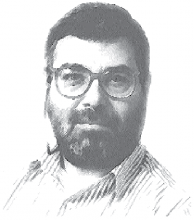You are here
2011-2016: Arab dashed hopes, opened eyes
Jan 15,2016 - Last updated at Jan 15,2016
Many analysts this week have marked the five years since the fall of former Tunisian president Zine Al Abidine Ben Ali, the first of several Arab dictators who were toppled from office by a wave of spontaneous street demonstrations across Arab countries.
This process of retrospective introspection is important if it can clarify whether new upheavals will occur or why the revolt of 2011 has been beaten back for many years.
It is troubling that the driving forces of the 2011 uprisings and revolutions — state autocracy and popular discontent — remain as strong as ever across most of the Arab world.
The exceptions are status quo forces in most of wealthy energy-rich states of the Gulf, and associated small pockets of wealth in most Arab capitals that are buoyed by a combination of Arab Gulf funds and Western political and military support.
The 2011 pressures on millions of families that could not fully meet their children’s basic needs or promise them a better life remain obvious today, in our education systems, corrupted and often incompetent power structures, security sector control of society, massive informal labour sectors and stagnant or declining well-being at family level.
The street uprisings in six Arab countries in early 2011 elicited cheers or sympathetic solidarity across the Arab world, because the pain that drove the demonstrators’ quest for liberty and dignity resonated widely with several hundred million people throughout our region who recognised those pains in their own lives.
So it seems fair to expect that one day the Arab region will experience new opportunities to achieve the real democratic transformations that failed to materialise in the past five years.
We cannot predict how and when this might occur, but we can honestly analyse our current condition to spot imminent trends.
I rarely agree with editorial views in the British publication The Economist, with its occasionally lingering European colonial attitudes to the south of our world, but I must admit that their analysis of this moment in the Arab world in last week’s edition, unimaginatively titled “The Arab Winter”, was outstanding.
I say this because it captured what I see as the two central dilemmas of Arab men and women today: their relationships to their states, and their understanding of what needs to change — and how they can induce that change — to transition from their legacy of political autocracy and socioeconomic stress to democratic pluralism and material well-being.
The Economist noted: “What underlies the rot, in Egypt and elsewhere, is the failure of generations of Arab elites to create accountable and effective models of governance, and to promote education.
“After some 60 years of essentially fascistic rule — the forced rallying behind a bemedalled patriarch, pomp and parades and propaganda disguising the reality that the people have no voice — it was perhaps not surprising that the backlash, when it came, was inarticulate and lacked direction.
“The Arab revolutions produced few leaders, few credible programmes for action, and few ideas. But they did produce much-needed clarity about such things as what political Islam actually means in practice, where the Arabs stand in the world and with each other, and what the weaknesses and strengths of Arab states and societies are.”
This nicely captures the hard road to achieving lasting democratic change and acknowledges the central forces that have battled one another across our region since the middle of the last century: the individual citizen’s quest for good governance and sustained and equitable development, erratic citizen interactions with the all-powerful state, the promises and failures of “political Islam”, the enormous will of militaries and the regimes they support, Arab and foreign interventions to maintain the status quo, and the needed changes in public governance, but also at the level of society, the family and the individual for a stable democratic system to take root.
Most of those forces — Arab security states and regimes, Arab and foreign interventions, Islamists in the public sphere — have not changed appreciably in the past five years.
What has changed, however, and what defines this historic era, is the new awareness and realism in the minds of several hundred million Arabs whose life conditions remain difficult.
These people will continue to seek a better life in their own countries, because their difficult socioeconomic conditions and almost absolute political powerlessness are intolerable to them.
The overwhelming majority of Arabs rejects the available current options of illegal migration or joining Daesh. But beneath their acquiescent exterior, they are not static or docile. Their minds have been awoken, their eyes have been opened, because their hopes from 2011 have been dashed for now.
Today, as then, we have no idea how disgruntled citizens will transform their fears into political acts. But we probably do know that they will do this, so for stubborn Arab regimes, this is a much more dangerous citizenry than the one of 2011.













